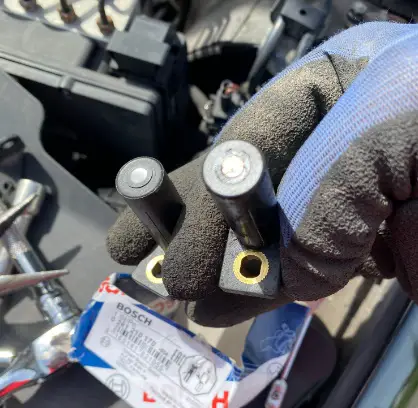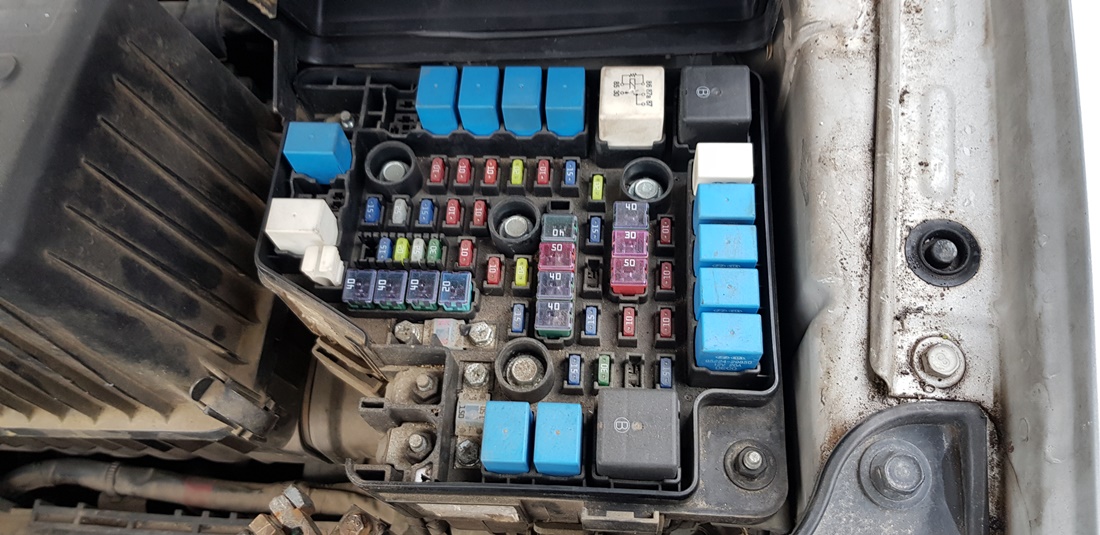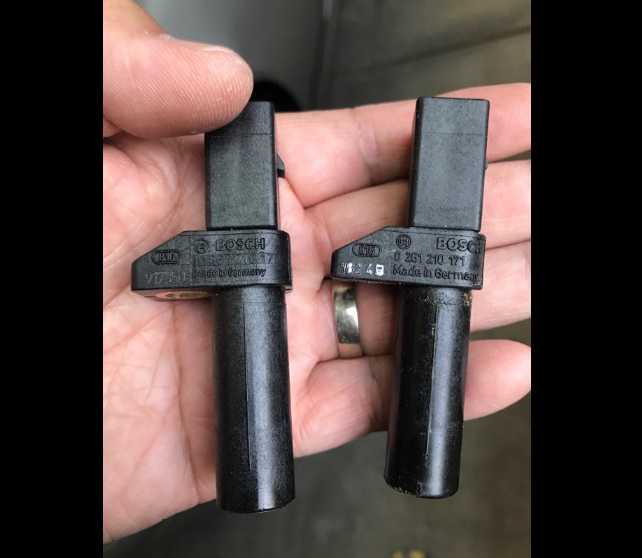The EGR (exhaust gas recirculation) system is a critical component in modern cars.
It helps to reduce emissions, but it can also cause problems with the turbo if it is not functioning properly.
In this blog post, we will discuss how a bad EGR can damage the turbo and what you should do if you notice any performance issues related to your car’s EGR system.
- Key Takeaway
- Will a Bad EGR Damage The Turbo?
- How To Spot a Faulty Turbocharger
- Is EGR Related To Turbo?
- Can a Clogged EGR Cause a Low Boost?
- Would EGR Malfunction Hurt The Engine?
- Can You Drive a Car With a Bad EGR Valve?
- FAQs
- Q: What are the symptoms of a bad EGR valve?
- Q: What can cause a turbo failure?
- Q: Can a faulty EGR valve cause engine damage?
- Q: What should I do if I suspect a problem with the EGR valve?
- Q: How can a bad EGR valve affect performance?
- Q: Is it possible to replace the EGR valve myself?
- Q: Can a faulty EGR valve impact fuel consumption?
- Q: How does the EGR valve ensure the proper function of the EGR system?
- Q: Can a faulty EGR valve cause other problems besides turbo failure?
- Conclusion and final thoughts
Key Takeaway
- Yes, a bad EGR (Exhaust Gas Recirculation) can potentially damage the turbo, as it can lead to excessive carbon build-up at the turbine end, causing mechanisms within the turbocharger to stick and malfunction.
- A faulty turbocharger can often be identified by symptoms such as a lack of power, increased exhaust smoke, excessive oil consumption, a loud whining noise from the engine, or the check engine light coming on.
- The EGR (Exhaust Gas Recirculation) system and the turbocharger are related as they both play key roles in engine performance and emission control, with the EGR helping to reduce harmful emissions and the turbocharger increasing engine power.
Will a Bad EGR Damage The Turbo?

Yes, a faulty or bad Exhaust Gas Recirculation (EGR) valve can potentially damage the turbocharger in your vehicle.
The EGR valve plays a crucial role in controlling the vehicle’s emission system. When it’s functioning properly, it helps to reduce the engine’s temperature and prevent the formation of harmful nitrogen oxides.
However, when the EGR valve is faulty or bad, it can cause the engine to run inefficiently.
This inefficiency can lead to increased exhaust temperatures and excessive carbon build-up, both of which can be harmful to the turbocharger.
Over time, this can lead to significant wear and tear on the turbocharger, potentially causing it to fail. Therefore, it’s important to ensure that the EGR valve is in good working condition to avoid any potential damage to the turbocharger.
How To Spot a Faulty Turbocharger
A faulty turbocharger can be identified by several signs including sluggish performance, excessive oil consumption, and unusual noises.
Sluggish Performance
A clear sign of a faulty turbocharger is a decrease in the vehicle’s overall performance. This can manifest as poor acceleration or throttle response. When the turbocharger isn’t functioning properly, it won’t be able to provide the necessary boost to the engine, resulting in noticeably slower acceleration and a lack of power.
Excessive Oil Consumption
Another common symptom of a bad turbocharger is excessive oil consumption. The turbocharger requires a good flow of clean oil to function efficiently. If there’s a problem with the turbo, it may start consuming more oil than usual. This can often be detected by checking the oil level regularly and noticing a faster than normal drop.
Unusual Noises
Faulty turbochargers can also produce unusual noises. A common noise associated with a failing turbo is a high-pitched whining or siren sound. This is typically caused by a disruption in the turbo’s airflow or a bearing failure within the turbo itself.
Smoking Exhaust
If your exhaust is blowing smoke, this could be a sign that your turbo is failing. A damaged turbo can sometimes leak oil into the exhaust where it’s burned and exits the tailpipe as smoke while you drive.
Check Engine Light
In modern cars, the computer diagnostics will pick up turbo faults and the check engine light will come on. While this light can indicate a variety of issues, if it coincides with any of the above symptoms, it’s a strong indication of a turbocharger problem.
Is EGR Related To Turbo?
Yes, the Exhaust Gas Recirculation (EGR) system and the turbocharger are related in that they both play a role in engine performance and efficiency.
The EGR system and the turbocharger work together to maximize the efficiency of your vehicle’s engine. The EGR system is responsible for reducing the amount of harmful emissions produced by the engine.
It does this by recirculating a portion of the engine’s exhaust gas back into the engine cylinders, which lowers the combustion temperature and reduces the amount of nitrogen oxides produced.
On the other hand, the turbocharger is designed to increase the engine’s power output by forcing more air into the combustion chamber, allowing more fuel to be burned and more power to be produced.
While they perform different functions, the EGR system and the turbocharger are interconnected. A malfunction in one can affect the performance of the other.
For instance, a faulty EGR can lead to an overworked turbocharger, potentially causing it to fail. Conversely, a failing turbocharger can result in an overload of the EGR system with too much exhaust gas, impairing its ability to function properly.
Therefore, it’s essential to ensure both systems are in good working order to maintain optimal engine performance and efficiency.
Can a Clogged EGR Cause a Low Boost?
Yes, a clogged EGR (Exhaust Gas Recirculation) valve can cause low boost in a turbocharged engine.
The EGR valve is an integral part of the engine system. Its function is to recirculate a portion of the exhaust gases back into the engine cylinders to lower combustion temperatures and reduce nitrogen oxide emissions.
However, over time, the EGR valve can become clogged with carbon deposits from the exhaust gases. When this happens, it can disrupt the proper functioning of the EGR system.
In a turbocharged engine, the turbocharger relies on a certain amount of exhaust gas flow to spool up and produce a boost.
If the EGR valve is clogged and not allowing enough exhaust gas to pass through, it can affect the turbocharger’s ability to generate a boost. This can result in reduced engine power and performance.
Therefore, if you’re experiencing low boost in your turbocharged engine, it could be due to a clogged EGR valve. It’s recommended to get the EGR system checked and cleaned if necessary to restore the proper functioning of the engine and the turbocharger.
Would EGR Malfunction Hurt The Engine?
Yes, an EGR (Exhaust Gas Recirculation) malfunction can potentially harm the engine over time.
The EGR system plays a crucial role in maintaining the health and efficiency of your vehicle’s engine.
By recirculating a portion of the exhaust gases back into the engine cylinders, the EGR system helps to lower combustion temperatures and reduce the amount of harmful nitrogen oxides produced.
When the EGR system malfunctions, it can lead to a range of problems. If the EGR valve is stuck open, it can cause the engine to run poorly, misfire, or even stall. This is because too much exhaust gas is being reintroduced, diluting the air-fuel mixture.
If the EGR valve is stuck closed or is clogged, higher combustion temperatures can lead to engine knocking or pinging, which over time can cause significant engine damage.
Can You Drive a Car With a Bad EGR Valve?
Yes, you can technically drive a car with a bad EGR (Exhaust Gas Recirculation) valve, but it is not recommended due to potential harm to the engine and decreased performance.
While it’s physically possible to continue driving a car with a faulty EGR valve, doing so is generally inadvisable.
The EGR valve plays an important role in your vehicle’s emission control system by recirculating a portion of the exhaust gases back into the engine cylinders.
This process helps lower combustion temperatures, reducing the amount of harmful nitrogen oxides produced.
FAQs
Q: What are the symptoms of a bad EGR valve?
A: Some common symptoms of a failing EGR valve include rough idle, decreased power output, poor fuel economy, check engine light illuminated, and a noticeable increase in exhaust emissions. These symptoms usually indicate that the EGR valve is not functioning correctly or is clogged with carbon deposits.
Q: What can cause a turbo failure?
A: Several factors can cause turbo failure, and a bad EGR valve is one of them. When the EGR valve is faulty or fails to function properly, it can lead to increased levels of exhaust gas recirculation (EGR) and soot in the intake manifold. This, in turn, can result in the accumulation of carbon deposits on the turbocharger’s compressor blades, causing the turbo to fail over time.
Q: Can a faulty EGR valve cause engine damage?
A: Yes, a faulty EGR valve can cause engine damage if not addressed promptly. When the EGR valve is not functioning correctly, it can lead to inefficient combustion and increased levels of nitrogen oxide (NOx) in the exhaust gas. High levels of NOx can lead to the formation of harmful nitrogen compounds that can damage the engine, including the combustion chamber, exhaust system, and catalytic converter.
Q: What should I do if I suspect a problem with the EGR valve?
A: If you suspect a problem with the EGR valve, it is recommended to have your vehicle inspected by a qualified mechanic. They can diagnose the issue and determine if the EGR valve needs cleaning, repair, or replacement. Ignoring the problem can lead to more severe engine damage and potentially costly repairs.
Q: How can a bad EGR valve affect performance?
A: A bad EGR valve can have a significant impact on the performance of the vehicle. It can cause rough idle, decreased power output, poor acceleration, reduced fuel efficiency, and increased emissions. The engine may also go into a “limp mode” to protect itself from further damage, resulting in a noticeable decrease in performance.
Q: Is it possible to replace the EGR valve myself?
A: Depending on your level of mechanical knowledge and experience, it may be possible to replace the EGR valve yourself. However, it is recommended to have the replacement done by a professional mechanic who has the necessary tools, expertise, and access to OEM parts. They can ensure proper installation and help you avoid any potential complications.
Q: Can a faulty EGR valve impact fuel consumption?
A: Yes, a faulty EGR valve can impact fuel consumption. When the EGR valve fails to recirculate the exhaust gases back into the combustion chamber effectively, the engine’s overall efficiency decreases. This can result in increased fuel consumption as the engine needs to burn more fuel to compensate for the lack of proper exhaust gas recirculation.
Q: How does the EGR valve ensure the proper function of the EGR system?
A: The EGR valve plays a crucial role in the proper functioning of the EGR system. It controls the flow of exhaust gases from the exhaust manifold to the intake manifold, where the gases are mixed with fresh air. By opening and closing, the EGR valve regulates the amount of exhaust gases that are recirculated back into the combustion chamber. This helps reduce nitrogen oxide (NOx) emissions and improve fuel efficiency.
Q: Can a faulty EGR valve cause other problems besides turbo failure?
A: Yes, a faulty EGR valve can cause other problems besides turbo failure. It can lead to increased emissions, reduced engine performance, rough idle, decreased fuel efficiency, and potential engine damage. It is essential to address any issues with the EGR valve promptly to avoid further complications and costly repairs.
Conclusion and final thoughts
In conclusion, a bad EGR can definitely damage the turbocharger if not addressed promptly.
The best way to prevent such an occurrence is to ensure that all components are regularly checked and maintained in order to extend the life of your turbocharger.
Regularly check the EGR valve for any signs of wear or tear and replace it before any further damage is done. With proper care and maintenance, you should be able to avoid costly repairs due to a faulty EGR.




